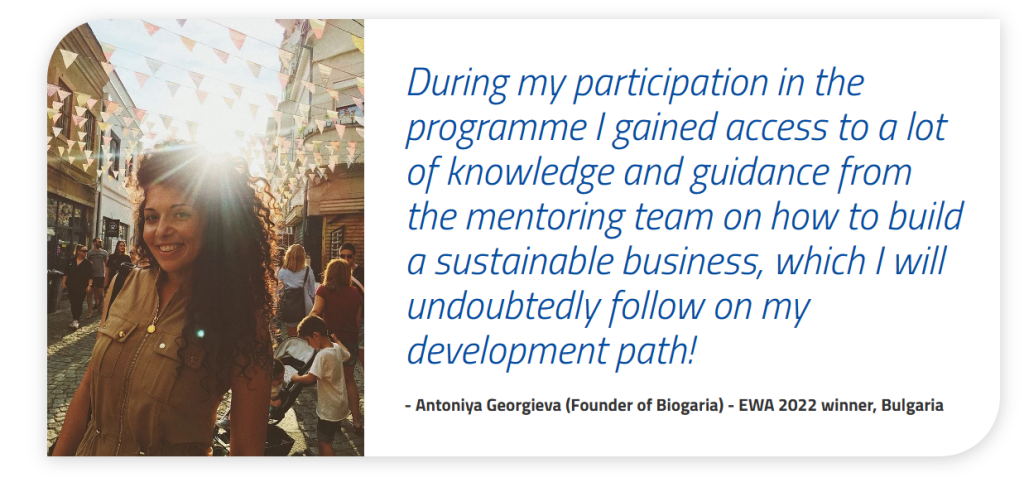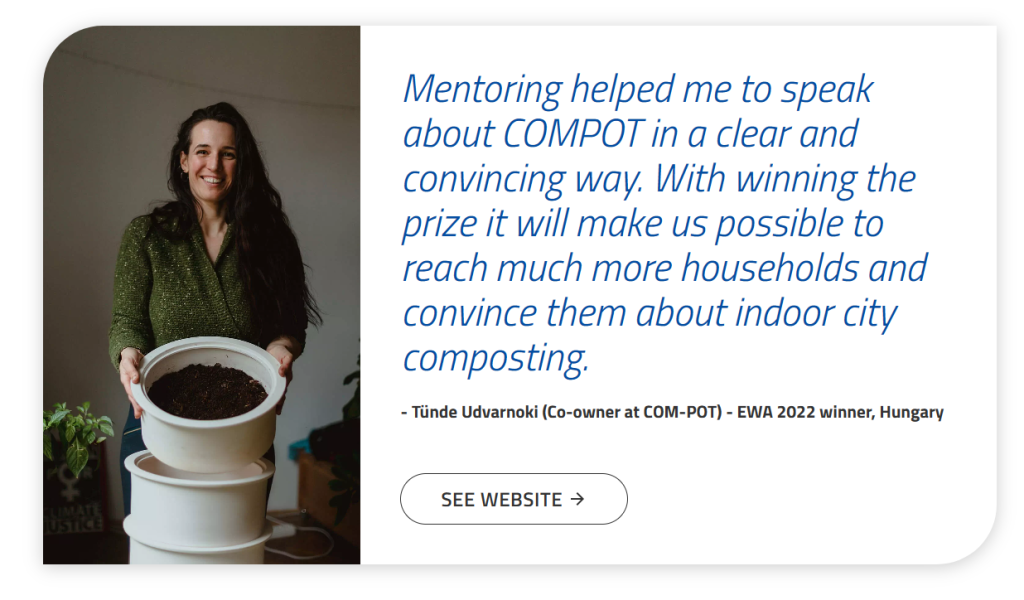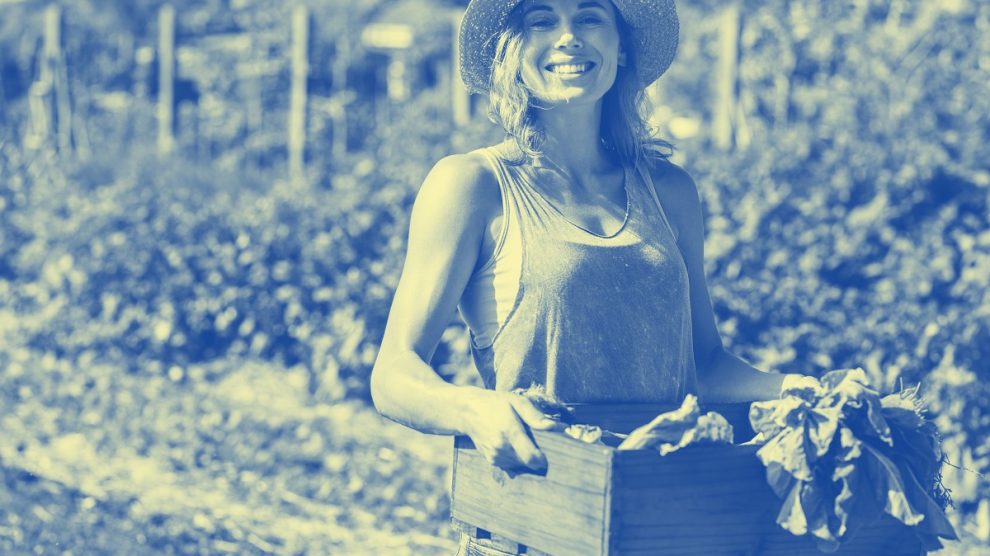The Empowering Women in Agrifood (EWA) programme by EIT Food provides a platform for female entrepreneurs to develop innovative solutions essential for creating a sustainable food system. Emerging Europe hears from some of its success stories.
Women are key to creating a genuinely sustainable food system across the world. They are already making significant contributions to the development and economic prosperity of rural communities across Europe, and are essential in maintaining, preserving, and enhancing rural regions, both culturally and economically.
However, their contributions are often undervalued and ignored.
- In the agrifood sector, women can be agents of change
- The last word: How to empower more women in the agrifood sector?
- Much of emerging Europe is falling behind on its commitment to equality
Recently, however, there has been a shift towards fostering innovation and diversity in rural areas, with one of the driving forces of this transformation being EIT Food’s Empowering Women in Agrifood (EWA) programme, which supports women entrepreneurs in the agrifood sector through training, mentoring, business coaching, and networking opportunities, among other resources.
EIT Food is supported by the European Institute of Innovation and Technology (EIT), a body of the European Union recently announced the call for applications for its fifth EWA programme. Some 120 female entrepreneurs from 12 countries (Bulgaria, Croatia, Czechia, Greece, Hungary, Italy, Latvia, Lithuania, Portugal, Spain, Turkey, and Ukraine) will participate in a comprehensive, six-month entrepreneurial programme designed to develop business solutions addressing the challenges in the agrifood sector.
From idea to start-up
For the women who have taken part in previous editions, the benefits of the programme are clear.
Paulina Gruodienė, an EWA 2022 participant from Lithuania is the founder of Fruttberry, a start-up making organic food mixes created from responsibly and carefully selected, balanced ingredients that are grown on organic farms and found in nature.
Gruodienė took part in EWA 2022 with just an idea and didn’t take one of the programme’s prizes. But as she says, “marathon runners, not sprinters, win in business”.
“Future EWA participants should not be scared by the intense six months,” she adds. “The most important thing is to believe in your idea and improve it every day. And the programme will help you with this: to build up discipline.”
Ralitsa Zhekova is executive director at Regional Agency for Entrepreneurship and Innovations – Varna (RAPIV) and implementing participant of the EWA 2022 programme in Bulgaria.
She highlights the importance of networking—one of the key elements of the programme.
“Networking is a crucial part of any entrepreneurial journey, and especially female entrepreneurs. In that sense the EIT Food EWA programme can provide valuable guidance and support in building strong relationships with mentors, peers and industry experts.”
“Successful women entrepreneurs are always learning and seeking out new growth opportunities,” she adds. “In that sense, EWA programme provides training and workshops thus continuously improving skills and knowledge of female entrepreneurs that helps them stay ahead of the curve and achieve long-term success.”
A great example of this is Jane Dimitrova, founder of FoodOBox, a start-up helping to reduce food waste by providing restaurants with a convenient way to sell food approaching its expiry date at a discounted price.
The start-up has grown by 52 per cent, adding 13,000 users of its app and 35 per cent more B2B clients (retailers and restaurants) since the start of EWA programme. The Bulgarian firm has also achieved its objective to enter new markets—Romania—and is expected to expand in Greece.
“The EWA programme gave me the opportunity to expand my network and to work on a new set of challenges related to scaling up the business—raising venture capital, expanding to new markets abroad, further development of the business model and B2B relations,” says Dimitrova.

Dealing with the entrepreneurial world
According to Miro Hegedić, founder and partner at Smion, a Croatian EWA 2022 implementing participant, before EWA there were no specific initiatives supporting women entrepreneurs in the agrifood sector in Croatia, especially in rural areas.
“General support programmes existed for women, but none targeted the unique challenges faced by female agrifood entrepreneurs,” he says. “The EWA programme successfully gathered women entrepreneurs from all parts of Croatia, offering financial support, access to great mentors, networking opportunities, and a different start-up mindset. This structured support has been invaluable in supporting their growth and success.”
One of these successes is Manuela Panić, PhD, from the Nades Design team. Following her participation in the EWA programme, Panić applied for the ‘Young Researchers Start-up/Spin-off’ call from Croatia’s National Recovery and Resilience Plan and secured 200,000 euros grant to develop her start-up.
Additionally, she was invited to Bayer’s 2024 Demo Day with EIT Food, further showcasing her achievements and potential.
“If you are in doubt about participating, I strongly encourage you to do so,” says Panić. “After the EWA programme I feel better prepared to deal with the entrepreneurial world.”
Highlighting the mentoring sessions as crucial, Panić adds that in order to maximize the benefits, “participants should come prepared to the mentoring sessions and complete the tasks assigned by their mentors”.
Ivna Podrug, is another 2022 Croatian participant and the founder of Adopt a Chicken. The programme, she says, was a game-changer.
“Through the connections I’ve made participating in the programme, I’ve found future partners. I met the founders of ruraline.com, who offered me the opportunity to become part of their story. They helped me solve transportation and logistics issues, which are crucial for the continuation of this venture.
“EWA helped me discover a new part of myself and step out of my comfort zone. I believe it is essential for women in agriculture to build confidence, and participation in such programmes is a significant step in that direction.”

‘Don’t hesitate’
Tamás Müller is an EWA 2022 Hungarian implementing participant and CMO and co-founder of Pozi Network.
He has a similar message to others for women unsure about participating in the programme: don’t hesitate.
“Consider the unique opportunities it offers for personal and professional growth,” he says. “Such programmes often provide access to a supportive network of peers and mentors who understand the specific challenges faced by women in entrepreneurship.
“This community can be invaluable for gaining confidence, sharing experiences, and receiving feedback. Additionally, think about the doors that could open through the expanded network and the skills you could develop that are directly applicable to growing your business. Sometimes, stepping out of your comfort zone is exactly what’s needed to move forward.”
Tünde Udvarnoki is prize winner from the EWA Hungary 2022 programme, and the founder of COMPOT, the world’s first indoor, worm-free composter made of ceramics.
“[EWA] helped me speak about COMPOT in a clear and convincing way, while the prize means that it will be possible for us to reach more households and convince them about indoor composting.”
Indeed, it’s the practical element, Tamás Müller suggests, that makes the EWA programme so special.
“It’s not just a theoretical initiative. It also practical opportunities for women to prevail in the agrifood sector and contribute to a more balanced agricultural industry.”
More information about EWA 2024 and application details can be found on the initiative’s website.
Unlike many news and information platforms, Emerging Europe is free to read, and always will be. There is no paywall here. We are independent, not affiliated with nor representing any political party or business organisation. We want the very best for emerging Europe, nothing more, nothing less. Your support will help us continue to spread the word about this amazing region.
You can contribute here. Thank you.


